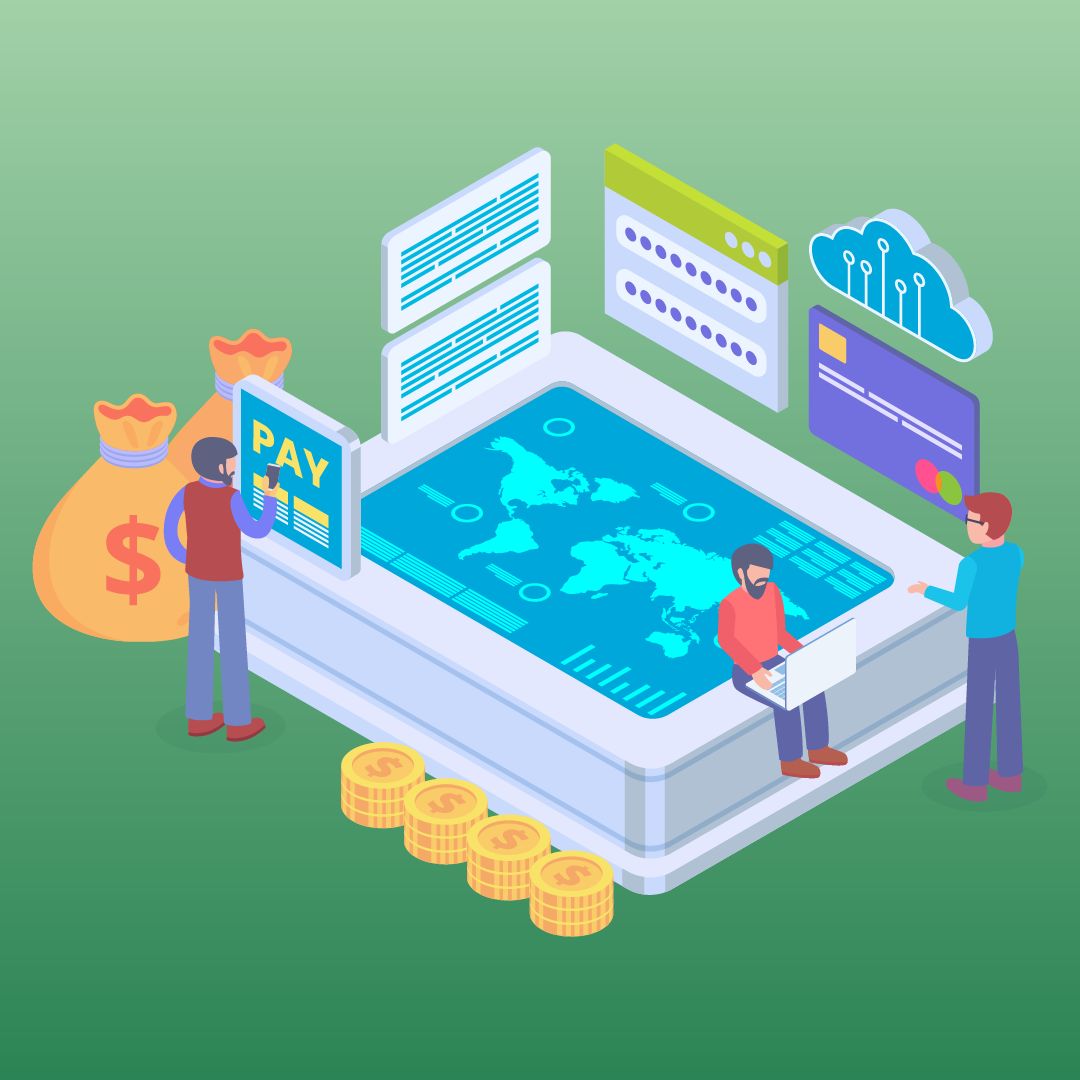2020 was a year of rapid growth for digital industries. Perhaps the largest growth area of all these industries was Financial Technology (or fintech for short). With consumers learning to function without physical cash (and reluctant to use it when they have the choice), digital payments have become the primary method of transaction for many businesses.
What is Financial Technology?
Financial technology is an industry that uses technology and digital methods for financial services and activities. Often these methods bypass traditional financial institutions such as banks and physical money in favour of cashless transactions and digitally integrated software.
Fintech is heavily reliant on high levels of internet penetration, in particular mobile internet usage, to deliver services to a wide range of users. New applications, products or processes that focus on delivering financial services via the internet can be considered part of the fintech industry.
Smartphones, mobile banking, investment apps, and cryptocurrencies are all examples of fintech aimed at making it easier for the average person to access financial services.
How has fintech affected the Philippines?
As a mostly young, tech savvy populace with a fast growing economy, the Philippines is well placed to take advantage of the rise in fintech. With over 30 million smartphone users and new government investment, the country has seen an explosion of new technology developments and innovations.
In particular, the e-money system has seen a huge rise to 20 million registered users and over 63,000 partner merchants accepting e-money payments. This digital wallet makes transactions more convenient through the use of smartphone apps, and has overtaken the total number of credit card holders in the Philippines.
The e-money wallet is an example of what the Bangko Sentral ng Pilipinas (BSP) calls a “sandbox” learning environment, where fintech developers can operate on a test or pilot basis with close monitoring by regulatory bodies.
Critical strengths and weaknesses of new technology can be identified easily in this environment, allowing the BSP the perfect balance of digitalization with minimal risk. This encourages innovators to bring new technology into the Philippines and further expand the fintech industry.
Will fintech continue to be successful in the Philippines?
The widespread adoption of fintech in 2020 has placed the Philippines in good standing or these services to continue to develop and succeed in the future. Manila in particular is one of the top 3 cities for viability in fintech business and transactions across the Asia-Pacific region.
As more people embrace fintech solutions, more businesses in the Philippines will be able to provide consumers and companies with better, seamless processes that result in productivity and economic growth. Consumers are no longer burdened with a paper-based system and the ease of financial activities makes businesses more likely to succeed.
The startup economy in the Philippines is young and full of potential, with plenty of room to develop new solutions to existing gaps in the market. The thriving business landscape and accessible tech solutions is also attractive to foreign companies looking to invest in the Philippines, utilizing the growing fintech services and vast talent pool to build smart, progressive and locally based businesses.
What’s next in the fintech industry?
BSP is continuing it’s initiatives in promoting financial technology and providing additional support towards financial inclusion, making it easier for disadvantaged communities in the Philippines to gain access to financial tools and services.
Combined with the ongoing rollout of fast fiber internet and improved mobile services, this rise in inclusivity helps drive economic expansion, with more people engaging in commerce and trade throughout the country.
As the industry continues to develop, 3 key areas are likely to be the main focus points for financial technology services:
1. Accounting Software Integration
Providing digital transactions is one thing, but keeping track of all invoices, credit notes and other financial information is crucial for successful fintech services. Increasing automation in this area will allow more businesses (particularly small business) the ability to unravel the complexity of accounting and free up time for employees to engage in more value-added projects.
2. Real Time Payments
Real-time payments are already the norm, and instant payment solutions are crucial for all businesses in the market. From ordering food to paying your tuition fees, RTP is the baseline expectation for ecommerce, and it’s only going to continue to become more necessary and widespread.
3. Cybersecurity and Compliance
Operating entirely cashless and in digital environments brings new risks and vulnerabilities for businesses and consumers alike. Fintech companies are joining up with cybersecurity firms to create new software solutions and further enhance their secure payment services.
Network tokenization, OTP, SCP and biometrics are all being developed, deployed and upgraded to provide additional layers of security to fintech services, while at the government level new regulations are ensuring widespread compliance with the latest security standards.
As lockdowns around the world forced businesses to adapt their operations to the virtual world, the demand for digital services and platforms continue to grow exponentially. In particular, fintech and the e-money system is an exciting space to be in, as it’s adopted and embraced by businesses in the Philippines.



